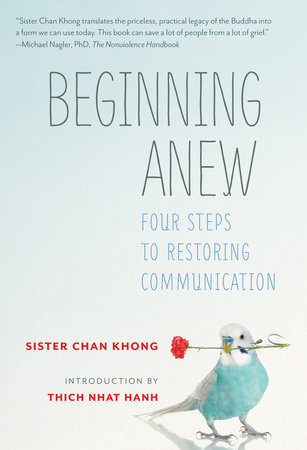Passive-aggressive behaviors are those that involve acting indirectly aggressive rather than directly aggressive. Passive-aggressive people regularly exhibit resistance to requests or demands from family and other individuals often by procrastinating, expressing sullenness, or acting stubborn.
YOU MIGHT ALSO LIKE
CLEAR ALL
BY TOPIC
BY TEACHER
BY TYPE
FILTER

TOPIC
- Neurodiversity (14)
- Intimacy (13)
- Divorce and Breakup (12)
- Work Relationships (10)
- ADD/ADHD (9)
- Toxic Relationships (9)
- Friendship (8)
- Withholding (7)
- Anger (6)
- Autism (6)
- Forgiveness (6)
- Parenting (6)
- Authenticity (5)
- Family Dynamics (5)
- Self-Development (5)
- New Relationships (4)
- Self-Acceptance (4)
- Self-Love (4)
- Setting Limits and Boundaries (4)
- Sex (4)
- Speaking Your Truth (4)
- Spiritual Growth (4)
- Cancer (3)
- Connection (3)
- Decision Making (3)
- Letting Go (3)
- LGBTQIA Relationships (3)
- Love (3)
- Mindfulness (3)
- Narcissism (3)
- Personal Development (3)
- Resilience (3)
- Self-Expression (3)
- Self-Reflection Practices (3)
- Self-Worth (3)
- Stress Management (3)
- Trust (3)
- Work Challenges (3)
- Acceptance (2)
- Accepting Love (2)
- Anger Management (2)
- Attachment Theory (2)
- Awareness (2)
- Collaboration (2)
- Compassion (2)
- Conflict Resolution (2)
- Disconnection (2)
- Dysfunctional Childhood (2)
- Emotional and Mental Health (2)
- Empathy (2)
- Finding Meaning (2)
- Guilt (2)
- Highly Sensitive People (2)
- Honoring Emotion (2)
- Intention (2)
- Leadership (2)
- Men’s Well-Being (2)
- Mindfulness Practices (2)
- Nonviolence (2)
- Offering Support to Others (2)
- Presence (2)
- Self-Discovery (2)
- Self-Esteem (2)
- Self-Realization (2)
- Self-Reckoning (2)
- Social Anxiety (2)
- Talk Therapy (2)
- Vulnerability (2)
- Women’s Well-Being (2)
- Activism/Service (1)
- Adaptability (1)
- Addiction (1)
- Asking for Help (1)
- Belonging (1)
- BIPOC Well-Being (1)
- Buddha Nature (1)
- Buddhism (1)
- Challenges with Teens (1)
- Codependency (1)
- Dharma (1)
- Domestic Abuse (1)
- Ego (1)
- Emotional Intelligence (EQ) (1)
- Emotional Labor (1)
- Empowerment (1)
- Enneagram (1)
- Failure (1)
- Fellowship and Community (1)
- Gender Challenges (1)
- Gratitude (1)
- Grief (1)
- Grit (1)
- Habit Formation (1)
- Household Labor (1)
- Identity (1)
- Indigenous Well-Being (1)
- Infidelity (1)
- Inner Life (1)
- Jungian Analysis (1)
- LGBTQIA Sexuality (1)
- Loneliness (1)
- Love Languages (1)
- Lovingkindness (1)
- Masculine/Feminine Dynamics (1)
- Midlife Crisis (1)
- Motherhood (1)
- Neuro-Linguistic Programming (1)
- Neuroscience (1)
- Perception (1)
- Positive Self-Talk (1)
- Psychology (1)
- Psychology and Spirituality (1)
- Raising Daughters (1)
- Regret (1)
- Retirement (1)
- Ritual (1)
- Self-Actualization (1)
- Self-Care (1)
- Self-Compassion (1)
- Self-Control (1)
- Self-Healing (1)
- Self-Limiting Beliefs (1)
- Self-Reliance (1)
- Shame (1)
- Spiritual Awakening (1)
- Spiritual Healing (1)
- Spiritual Life (1)
- Spirituality and Health (1)
- The Divine (1)
- Transformation (1)
- Transitions (1)
- Values (1)
- Well-Being (1)
- Work Ethic (1)
- Work-Life Balance (1)
FILTER

TEACHER
- Elizabeth Lesser (3)
- Ramani Durvasula (3)
- Terri Cole (3)
- Brendon Burchard (2)
- Elaine Aron (2)
- Gay Hendricks (2)
- Harville Hendrix (2)
- Helen LaKelly Hunt (2)
- John Bradshaw (2)
- John Gottman (2)
- Lori Gottlieb (2)
- Sharon Strand Ellison (2)
- Thich Nhat Hanh (2)
- Chan Khong (1)
- Daniel Amen (1)
- don Miguel Ruiz (1)
- Dorothy Firman (1)
- Edward Hallowell (1)
- Elizabeth Gilbert (1)
- Gary Zukav (1)
- Iyanla Vanzant (1)
- Jeff Foster (1)
- John Welwood (1)
- Karen Casey (1)
- Kathlyn Hendricks (1)
- Kim Eng (1)
- Louise Hay (1)
- Marie Forleo (1)
- Maya Angelou (1)
- Melanie Joy (1)
- Oprah Winfrey (1)
- Rick Hanson (1)
- Russell Brand (1)
- Shefali Tsabary (1)
- Stan Tatkin (1)
- Stephen Covey (1)
- Tara Brach (1)
- Terry Real (1)
- Thubten Chodron (1)
- Tony Gaskins Jr. (1)
- Zainab Salbi (1)






 We cannot make another person change his or her steps to an old dance, but if we change our own steps, the dance no longer can continue in the same predictable pattern.
We cannot make another person change his or her steps to an old dance, but if we change our own steps, the dance no longer can continue in the same predictable pattern.